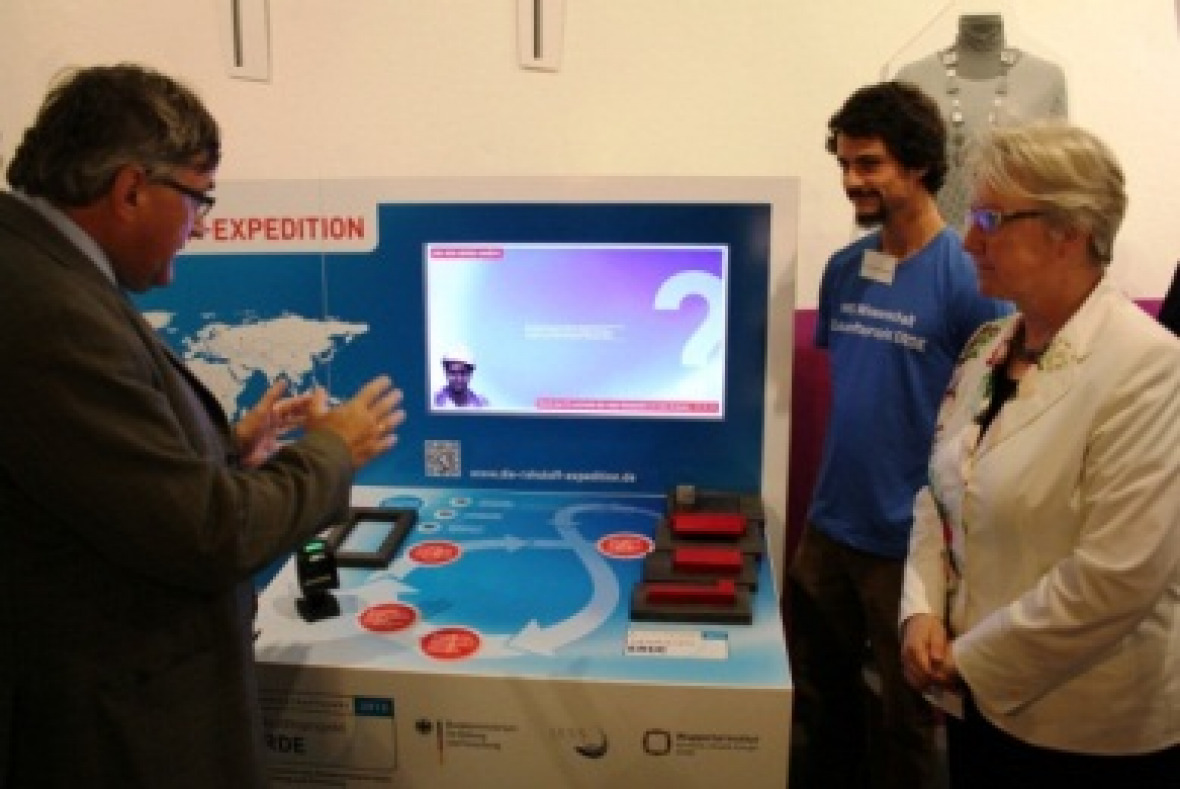Headline:
„Mobile Phones, Resources and Sustainability – Contradiction or vision for the future? – Final conference with IASS Executive Director Klaus Töpfer


Worldwide, there are 6.4 billion registered mobile phones with about 7 billion people on earth. Hence, an end of the cell phone boom is not in sight. At the same time, there are about 83 to 85 million mobile phones unused in drawers in Germany alone, according to current estimations. This development is associated with a rapidly rising energy and resource consumption since there are more than 60 different materials in one mobile phone. The recycling rate worldwide, however, is very low.
Within the framework of the BMBF Science Year 2012, the Wuppertal Institute for Climate, Environment and Energy and the Institute for Advanced Sustainability Studies (IASS Potsdam) have launched a research and communications project concerning the “Return and Utilization of Used Cell Phones” as a starting point for sustainable consumer behavior. The project analyzes the user behavior concerning mobile phones as products with above average growth, a very high resource and energy consumption, low recycling rates and geared towards mass consumption structures.
The results will be presented and discussed on April 22, 2013 at the IASS in Potsdam at the closing conference “Mobile Phones, Resources and Sustainability – Contradiction or Vision for the Future?”. Prof. Klaus Töpfer, Executive Director of the IASS, will open the conference.
In addition, concrete recommendations for actions and further research needs should to be identified, because the involved partners from politics (BMBF and BMU), industry (Deutsche Telekom, Vodafone, E-Plus, Telefonica, Teqport, Vere, Take-e-way, Electrocycling), and science (IASS Potsdam, Wuppertal Institut und Leuphana) agreed from the beginning that such a project needs to be created for the long term and hence sustainable in the sense of “permanent” and “systemic” in order to achieve visible and relevant results in terms of awareness and behavioral changes. Currently, all partners wish to continue the project.
Besides the scientific research of consumer behavior with regard to mobile phones, an awareness campaign for the resource intensity of cell phones has been developed with practical-oriented focus. For example, extensive learning and working materials were created and a cell phones drive was arranged in schools. Meanwhile, more than 1,600 schools take part in the “commodity expedition”.

